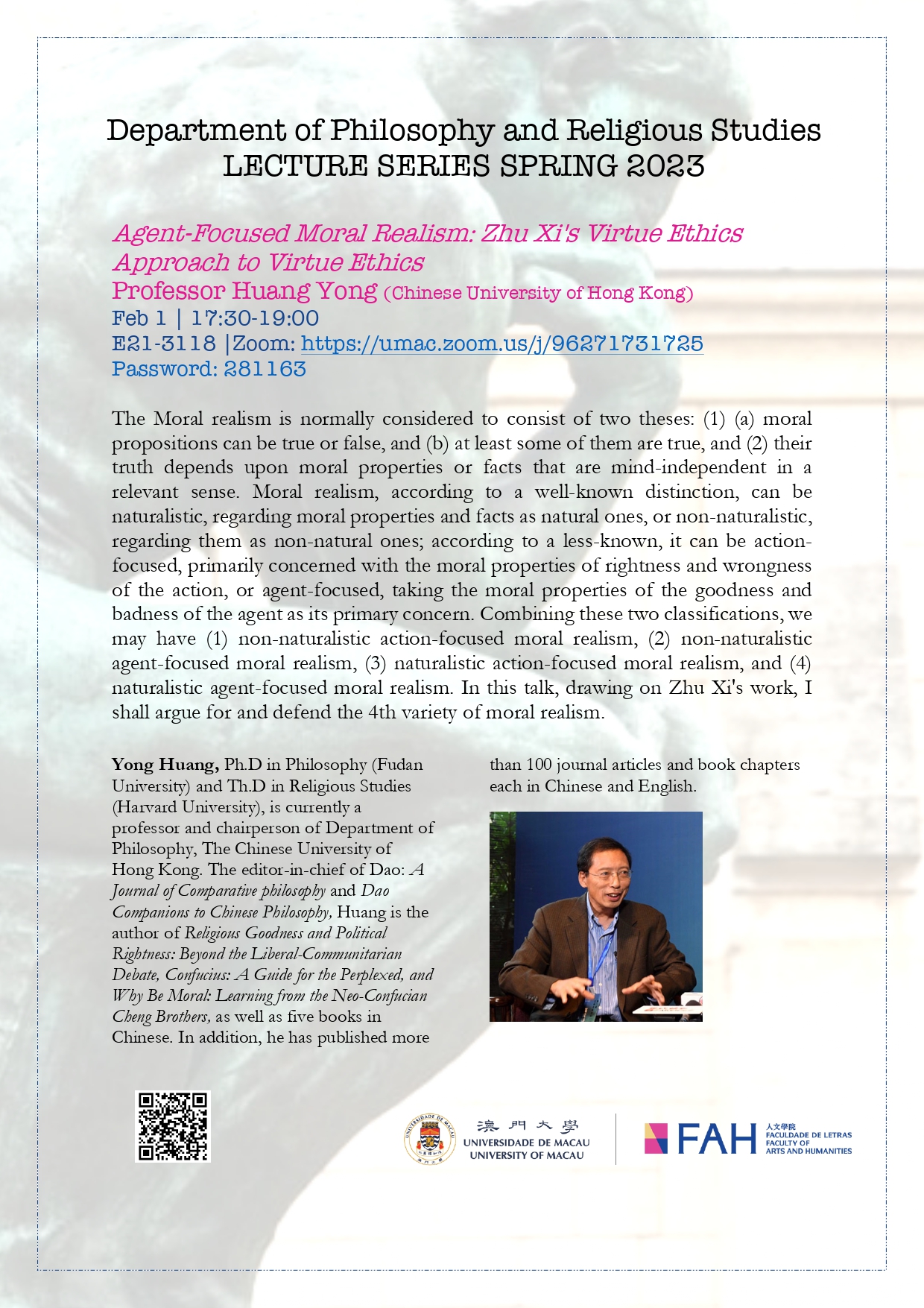

FAH/DPHIL Lecture Series – “Agent-Focused Moral Realism: Zhu Xi’s Virtue Ethics Approach to Virtue Ethics” by Prof. Huang Yong, The Chinese University of Hong Kong, Hong Kong
2023-02-01 @ 5:30 pm ~ 7:00 pm
Zoom: https://umac.zoom.us/j/96271731725
Password: 281163
Abstract
The Moral realism is normally considered to consist of two theses: (1) (a) moral propositions can be true or false, and (b) at least some of them are true, and (2) their truth depends upon moral properties or facts that are mind-independent in a relevant sense. Moral realism, according to a well-known distinction, can be naturalistic, regarding moral properties and facts as natural ones, or non-naturalistic, regarding them as non-natural ones; according to a less-known, it can be action-focused, primarily concerned with the moral properties of rightness and wrongness of the action, or agent-focused, taking the moral properties of the goodness and badness of the agent as its primary concern. Combining these two classifications, we may have (1) non-naturalistic action-focused moral realism, (2) non-naturalistic agent-focused moral realism, (3) naturalistic action-focused moral realism, and (4) naturalistic agent-focused moral realism. In this talk, drawing on Zhu Xi’s work, I shall argue for and defend the 4th variety of moral realism.
Bio
Yong Huang, Ph.D in Philosophy (Fudan University) and Th.D in Religious Studies (Harvard University), is currently a professor and chairperson of Department of Philosophy, The Chinese University of Hong Kong. The editor-in-chief of Dao: A Journal of Comparative philosophy and Dao Companions to Chinese Philosophy, Huang is the author of Religious Goodness and Political Rightness: Beyond the Liberal-Communitarian Debate, Confucius: A Guide for the Perplexed, and Why Be Moral: Learning from the Neo-Confucian Cheng Brothers, as well as five books in Chinese. In addition, he has published more than 100 journal articles and book chapters each in Chinese and English.

